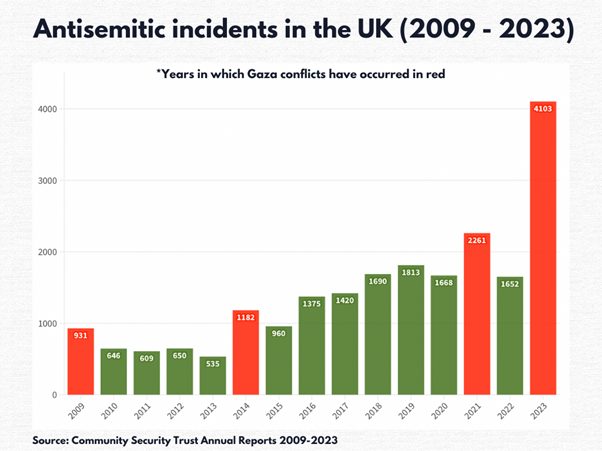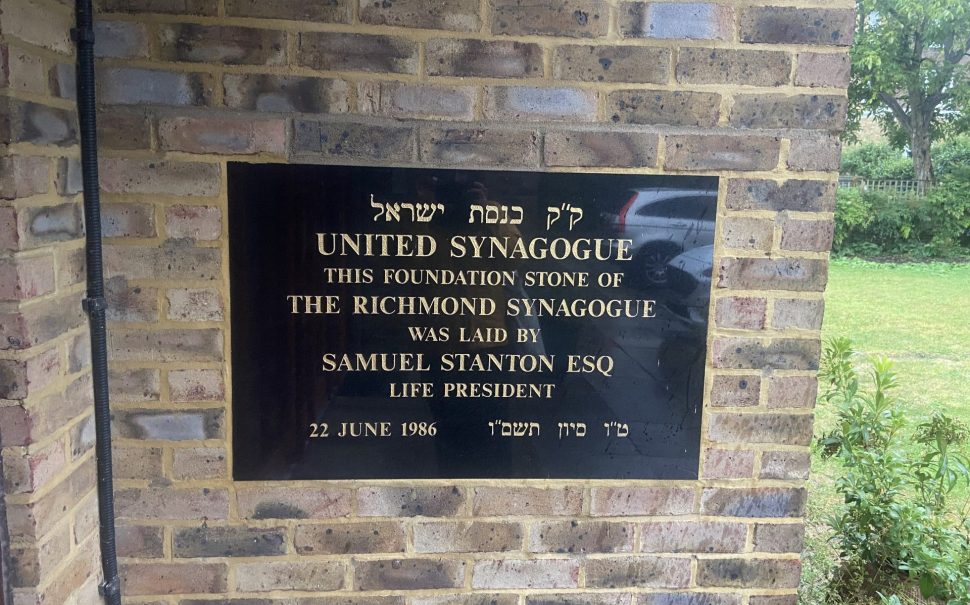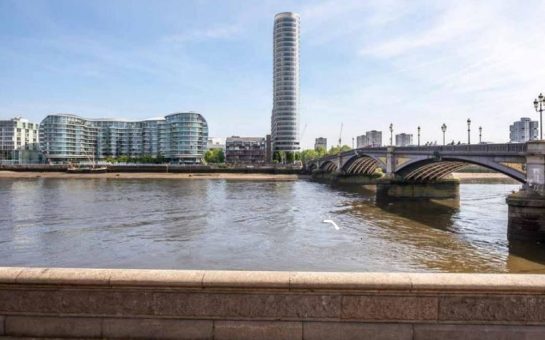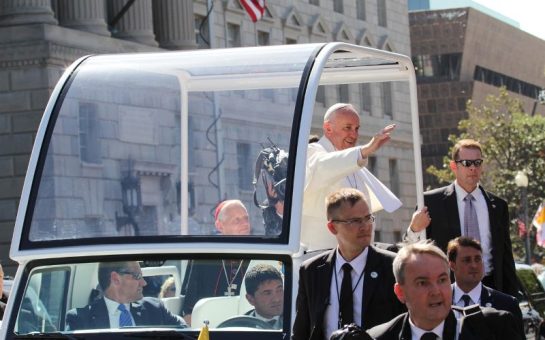With the UK hurtling towards a general election, a countrywide mishandling of antisemitism looks set to feature heavily at the ballot box, with Jewish adults feeling more marginalised than ever.
A recent poll conducted by the Jewish Leadership Council (JLC) saw more than half of all the 790 Jewish adults say antisemitism has increased a lot over the last five years, rising to nearly three-quarters of those over 35.
The data provokes a question: how is this affecting people in the capital?
The President of King’s College London’s Jewish Society, Ethan Benjamin said that because of the growing antisemitism, the group had increasingly begun to rely on each other.
He said: “I think the connection between members of the society has really grown in the last few months, but ultimately there is still so much fear.
“Many students are far more reluctant to present an outward ‘Jewishness’.
“A lot of my friends have chosen not to wear the kippah and instead wear baseball caps. It’s got to a point where nobody wants to risk getting any abuse.
“Workloads were really affected, with a lot of students not turning up for lectures simply because they were scared.”
Benjamin said the university have supported the Jewish community, but he feels disconnected with, and let down, by the UK population.
He added: “This time last year I was looking for jobs in London and focusing on making a life here, but within the last few months I’ve started to really consider relocating to Israel.”
A total of 182 antisemitic incidents involving students, academics, student unions, or societies were recorded in 2023 according to the Community Security Trust (CST) a group who monitor anti-Jewish abuse and support UK Jewish communities.
This is more than triple the same period in 2022, with 148 of those (81%) occurring after 7th October.
In London, monthly data from the Met Police tells a distressing story, with 1857 antisemitic incidents occurring in the capital from January 2023-2024, again, triple the previous year.
A total of 1164 incidents (62%) occurred solely in the months of October, November, and December in 2023 – ten times the total from the same three-month period in 2022.

Figures from the ONS and the 2021 Census place more than half of the Jewish population in England and Wales in London, with 14.5% of the North London borough of Barnet identifying as Jewish – the highest in London.
Barnet, Hackney, and Camden, the boroughs with the largest percentage of Jewish residents, all saw significant increases and represented 44% of the total antisemitic offences in the capital.
Barking & Dagenham, Bexley, and Newham, the three boroughs with the lowest percentage of Jewish residents, not only saw minimal increases but did not represent a significant amount of anti-Jewish offences in the first place.
Westminster saw a particularly sharp rise in antisemitic hate crimes, six times higher than the previous year increasing from 46 to 276.
This anomalous increase can be put down to the vast number of protests and marches that took place in the borough at the end of 2023.

In 2023, there were 87 antisemitic incidents recorded at Jewish schools, with an additional 111 incidents involving Jewish schoolchildren away from school, often on their way to or from home, according to the CST.
There was a total of 127 incidents involved Jewish schoolchildren or staff at non-faith schools.
This constitutes a record annual total of 325 antisemitic incidents within the school sector, another more than 200% increase from the 98 incidents recorded in 2022.
Of these, 229 (70%) took place after 7 October.
Europe’s largest Jewish school, the Jewish Free School (JFS) in North London, has previously advised pupils to take off blazers and ties while travelling on public transport.
Former JFS pupil, and current University College London student, Eden Robertson has felt an increased anxiety on campus and in London since October.
Robertson said: “This autumn was a period of shared grief and mourning felt by many but intensely shared in the Jewish and Muslim community.
“Some friends and I entered a period of isolation choosing to remove ourselves from social situations and focusing on close friends and family.
“Antisemitism has always been active in society, but I never thought I’d live through a time where it is so present and visible.
“I can’t imagine how worried my parents and I would feel about getting the tube or bus into school in my uniform.”
Including the ongoing conflict in Gaza, the last four periods of conflict have seen a sharp rise in antisemitic incidents being reported.

Hansard, the official report of all Parliamentary debates has noted a considerable rise in the number of times the word ‘antisemitism’ is said.
During the five-month period between 1st October 2023 and 1st March 2024, there were 266 mentions of the word antisemitism in the House of Commons.
The five-month period before the conflict started, from May to September saw the word appear just 72 times.
Looking back to the most recent Gaza conflict in May 2021, Hansard recorded 76 occasions when the word ‘antisemitism’ appeared.
Similarly, the month of May 2021 saw a spike in antisemitic hate crimes recorded in London with 198 incidents – the highest previous total before October 2023 and a 230% increase from April 2021.
That year saw a total of 845 incidents with an average of 70 per month.
The UK has seen a staggering rise in antisemitism since Hamas’s attack on 7th October, with CST figures showing a 589% increase in the number of incidents compared with the same period in 2022.
Of the 4,103 instances of anti-Jewish hate reported, two-thirds occurred on or after 7th October. This figure exceeds any previous annual antisemitic incident total recorded by
CST, with 1,330 incidents recorded in October alone.
With mayoral elections approaching in May and a general election likely taking place in the autumn, it’s down to the political leaders to reconcile the harrowing figures with the Jewish community.
Benjamin added: “I actually quite like Keir Starmer, but I just don’t think I can stomach a vote for the Labour party – I simply do not trust certain wings of the party.”
Robertson was however more equivocal: “I don’t think it will have a particularly significant impact on how I vote due to the vast number of divisions within both major parties.
“I feel the issue has been used so cynically like a political football.
“The headline really is that so much more can and should be done for Jews and Muslims in this country.”




